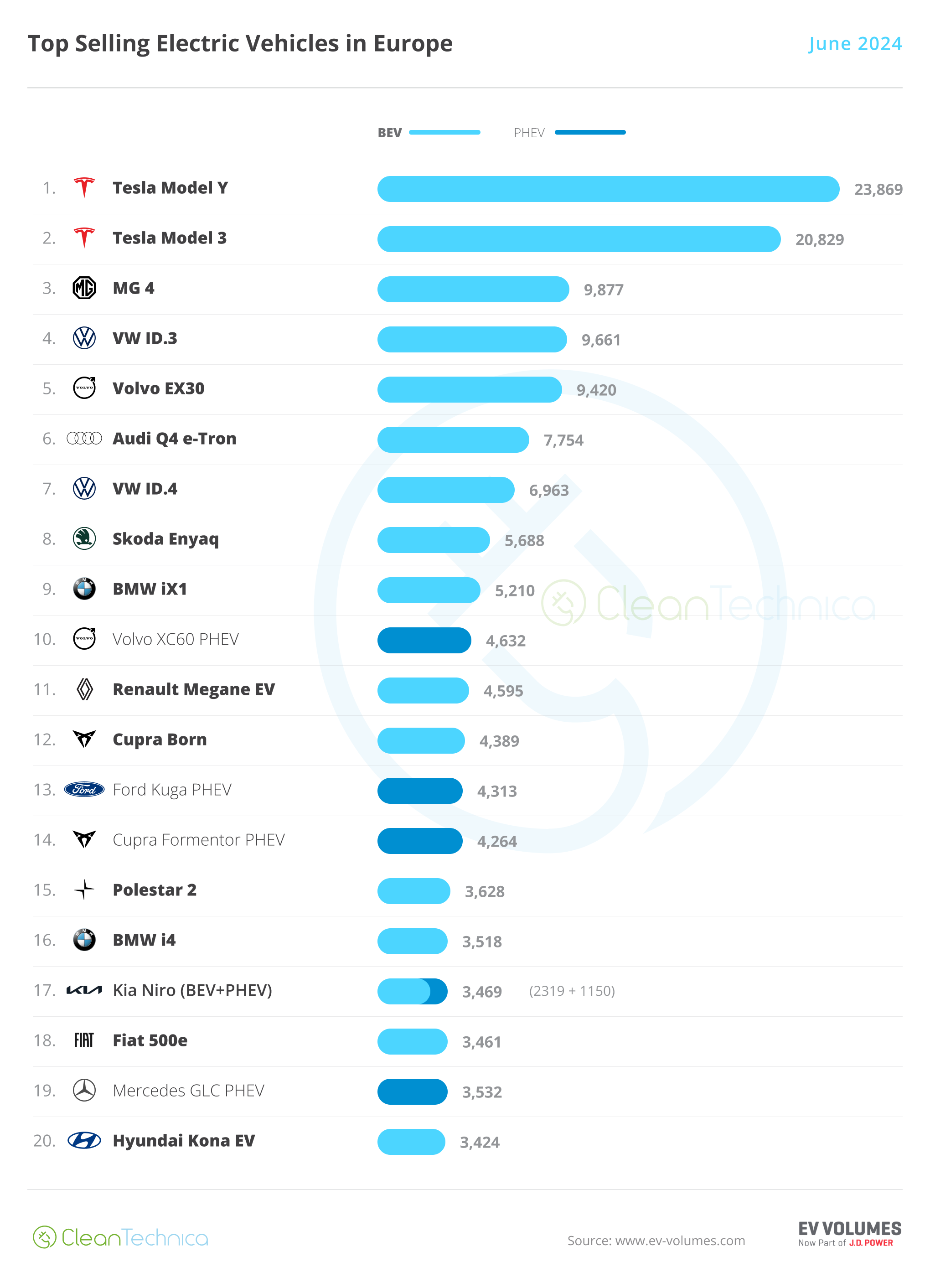
Sign up for daily news updates from CleanTechnica on email. Or follow us on Google News!
The Economist says that petty spats among billionaire Elon Musk, other tech tycoons, and the MAGA crowd may be “a sign of a much deeper rift” within the right wing incoming US executive office. The policy team of once-and-future President Donald J. Trump has “disparate, sometimes contradictory goals,” with the tech contingent seeing “government as something to influence and disrupt.” Policy disputes are inevitable.
The turmoil may bode well for clean energy progress. Are the economic and political stakes of abandoning the energy transition simply too high? While the pace of progress may slow, can the broader momentum of climate action and renewable energy stay vital under Trump?
Jack Niles in his Substack asks us to consider how we can accomplish enormous goals by breaking them into small parts. Analysis requires us to examine each task and decide whether we can complete them by ourselves, “possibly with some technological aids, or need to communicate with someone or something in order to fulfill the requirements.”
Let’s apply Niles’ approach to look at the various ways that Musk and other right wing activists are attempting to assert their influence on the US government. We’ll break the actions of these right wingers into separate parts. Together, the gestalt may help us make sense of the Trumpsters’ next energy steps a bit more keenly.
The Uncertainty of Right Wing Trumpsters and Clean Energy
Inauguration contributions: Musk donated $277 million toward electing Trump and other Republicans in 2024. The result? He’s become one of the advisers in the Trump inner circle. Indeed, the Trump Vance Inaugural Committee, Inc. has become “a record-breaking cesspool of special interest financing,” according to Public Citizen. The inauguration committee is likely to collect up to $200 million in private donations to finance the 60th inaugural festivities. This amount shatters all historical norms for inaugural fundraising.
These million-dollar donors come from a small class of very wealthy industries in Big Tech, cryptocurrency, government contractors, and others with lucrative contracts or business pending before the federal government. Some of the biggest donors had long been critics of Trump, especially following the January 6 insurrection by Trump supporters. Now, however, the same group is “fearful of retributions by a vengeful president.” Amazon, Apple, Chevron, Citigroup, Bank of America, Goldman Sachs, Google, Meta, OpenAI CEO Sam Altman, Pfizer, Microsoft, and Coinbase are among those that have pumped money into Trump’s inaugural fund. Such donations will absolutely have an effect on clean energy funding — both public and private.
Environmental policy disarray: The new administration is expected to take aggressive action to reverse the Biden environmental agenda, yet the process of repealing and replacing Biden’s rules may be lengthy. The Trumpsters may even maintain some Biden policies and even expand others where those policies benefit both renewable energy and traditional fossil fuels. In the interim, there’s likely to be a whole lotta proposed changes to federal clean energy programs, including the Inflation Reduction Act, US participation in the Paris Climate Accords, increased US oil and gas drilling, renewable energy promotion, methane rulings, and coal-fired power plants’ carbon emissions caps.
Clean energy investment in manufacturing of electric vehicles, batteries, solar panels, and long-duration energy storage systems has thrived under Biden’s policies. Will loss of subsidies and regulations to enhance the economics behind decarbonization change how investors see their bottom lines? Will a skeptical federal administration undermine state-level policies and corporate sustainability commitments?
Policies that actually work to green our lives: The most effective policies in driving short-term reductions are a mix of different tools, including subsidies, pricing, and regulation, says Eric Biber of Legal Planet. Policy mixes allow for interactions to be more effective – for instance, subsidies that reduce the costs of decarbonization technologies can have extra force when paired with carbon pricing.
Carbon pricing, on its own and as part of a policy mix, Biber explains, can have in driving short-term emissions reductions.
Department of Government Efficiency: Musk and Vivek Ramaswamy have already revised their original estimate to cut $2 trillion from a roughly $7 trillion US federal budget. They’re hard at work, sending representatives to the Treasury Department, the Internal Revenue Service, and the departments of Homeland Security, Veterans Affairs, and Health and Human Services. Their brainstorming has begun, with 50 staffers already working out of the offices of SpaceX in downtown Washington.
None of us really knows what the plan is for DOGE. Who is paying the salaries of these staffers? How are they coordinating with Trump’s formal transition team? What are their plans for attaching federal clean energy programs?
Culture clashes vs. existing federal programs: Matt Bai in the Washington Post describes the right wing faction surrounding once-and-future President Donald J. Trump as “deep state destroyers.”
“These are the Trumpists who regard the federal government as a statist and repressive enterprise — inherently wasteful, culturally elitist, hopelessly corrupt, and increasingly tyrannical in its rules and regulations. They don’t care about deficit spending — but for a different reason than the far left: Their goal is to see the whole machine come tumbling down.”
Bai also suggests that DOGE be revelatory to everyday US citizens who could rediscover that life is better with the federal programs threatened with cuts.
SEC lawsuit against Musk: US securities regulators sued Elon Musk in federal court in Washington earlier this week. The enforcement action arose from his $44 billion purchase of Twitter, which he renamed X. The Securities and Exchange Commission (SEC) states that Musk violated securities laws by amassing a large stock position in the social media company without filing the proper notification — it took him 11 days to file.
The regulatory filings are required so investors in the marketplace can monitor the moves of large investors and potential takeover bids. The lawsuit could become wrapped in right-wing politics as the current SEC chair, Gary Gensler, is replaced by the Trump administration.
Oligarchy of right wing ideologues: In his farewell address, President Joe Biden warned the country of “a dangerous concentration of power in the hands of a very few ultrawealthy people” with many consequences if their abuse of power is left unchecked.
“Today an oligarchy is taking shape in America of extreme wealth, power, and influence that literally threatens our entire democracy, our basic rights and freedoms, and a fair shot for everyone to get ahead.”
Never before has Google search analysis found so many users looking up definitions for “oligarchy.”
The actual state of the US economy: As Heather Cox Richardson outlines diligently in her Substack, the state of the US is more robust than most of its citizens know. Disinformation that is repeated and repeated and repeated morphs into a type of truth that grounds belief systems. Here is the actual report on the US as President Joe Biden gets ready to leave office.
“No US troops are fighting in foreign wars, murders have plummeted, deaths from drug overdoses have dropped sharply, undocumented immigration is below where it was when Trump left office, stocks have just had their best two years since the last century. The economy is growing, real wages are rising, inflation has fallen to close to its normal range, unemployment is at near-historic lows, and energy production is at historic highs. The economy has added more than 700,000 manufacturing jobs among the 16 million total created since 2020.
Chip in a few dollars a month to help support independent cleantech coverage that helps to accelerate the cleantech revolution!
Have a tip for CleanTechnica? Want to advertise? Want to suggest a guest for our CleanTech Talk podcast? Contact us here.
Sign up for our daily newsletter for 15 new cleantech stories a day. Or sign up for our weekly one if daily is too frequent.
CleanTechnica uses affiliate links. See our policy here.
CleanTechnica’s Comment Policy




